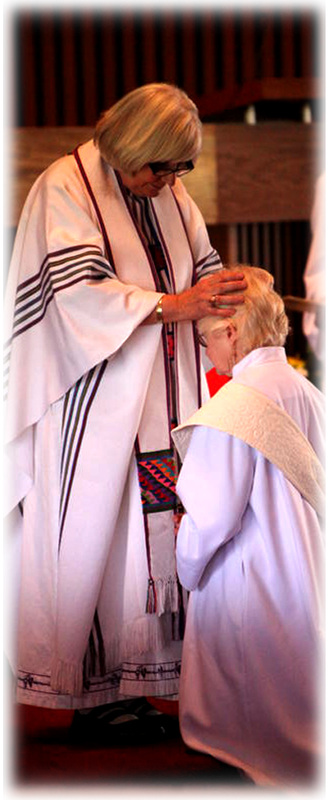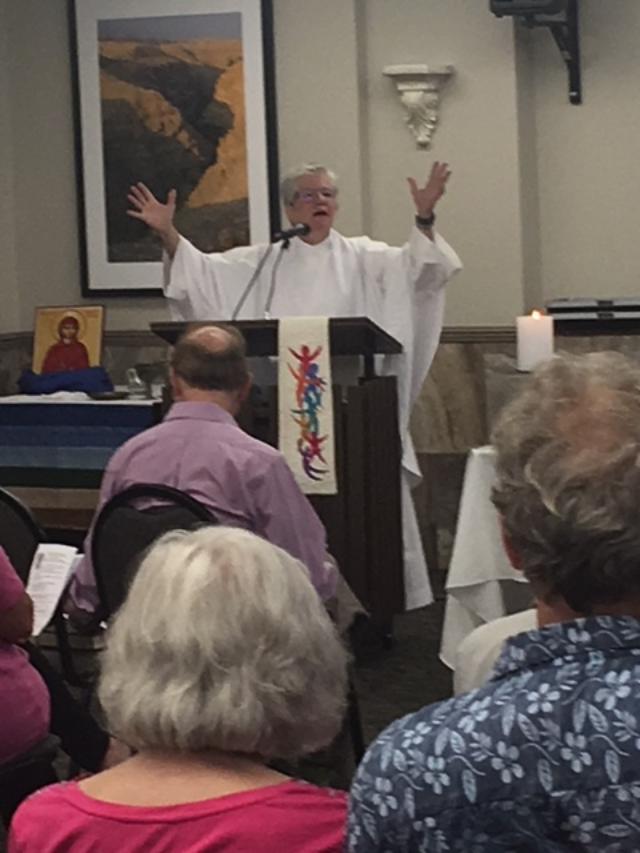Helen Weber-McReynolds
2/6/22
Isaiah 6: 1-8, Ps. 138, 1 Cor 15: 1-11, Luke 4: 38-44
If you grew up in Catholic school, you probably remember Vocation Days. These were days devoted to the idea that everyone had a vocation. Everyone was called by God to some kind of mission, to spread God’s word and increase the love in the world. Unfortunately, the system was strictly delineated by gender—boys could consider priesthood, but girls could not. They could be sisters. Or, of course, there was always marriage or the single life. In the institutional church, the story is still the same. The reason we are all here today, celebrating liturgy with this particular community, instead of in a diocesan parish, is because we believe that God does not limit call to ordained ministry to only men. And we have found a way to actualize that call, whether the Vatican hierarchy is ready for it or not. We have felt the strength of the Holy Spirit’s call, and we have not turned away from it. At risk of rejection by the church we love, we have stepped forward to answer God’s call, to live our lives according to the teachings of Jesus, as we hear them.
Our readings today all focus on people answering God’s call, as they heard them. Isaiah was called to prophecy, to deliver God’s truth to the people, as we read in this passage from the early chapters of this book. He considered himself not worthy of this task, but was emboldened to speak the word of God by God’s forgiveness of his sins. “Your guilt has fled. Your misdeeds have been blotted out,” the angel told him. So when God asked, “Who will go for us? Who can we send?” Isaiah said, “Here I am, send me!” God’s unconditional love moved Isaiah to answer God’s call. Though the Bible doesn’t say, we assume he spent the rest of his life calling others to proclaim God’s love, and calling for justice for any who were marginalized.
Paul was called to be an apostle, (from Greek apostolos, “person sent”). Sometimes the word ‘apostle’ is used to describe missionaries, people sent to preach and teach to the unevangelized. Jesus named those he had sent out to teach in the villages two by two “apostles” on their return, according to all three synoptic gospels. They were delegates sent with authority, to heal and do as Jesus had been doing around Judea. Paul recognized he had been sent with authority to minister especially to non-Jewish people, to expand the range of believers beyond just the area where Jesus lived and taught. He also felt unworthy, but, like Isaiah, had been moved by the unconditional mercy of God, God’s “grace,” to speak to as many as he could, in as large an area as he could cover. In this reading he encouraged his congregation in Corinth to do the same, to recognize God’s love for them, so that they would also have the courage to proclaim the truth of Jesus’ teachings with their lives.
Peter’s unnamed mother-in-law (maybe Gladys or Glaphyra, according to some historians) also was called by God. Because of the use of the Greek word diakonei in this passage, we believe she was called, not just to service, but to ministry. When the reading says she served them at table, we believe this implies she served them liturgically. Jesus cured her on the sabbath, apparently considering it urgent that she be able to carry out her duties. It was after the sabbath was over that he healed the others who were brought to the house.
And of course, Jesus was called by God, for the most important mission of all. He was called to heal, preach, and enlighten his listeners on God’s loving plan for the world. The gospel says he ‘rebuked’ the fever Peter’s mother-in-law had, which implies they believed a demon caused the fever. The second part of our gospel today recounted how Jesus rebuked other demons as he healed people with various maladies. Medical understanding was very primitive then.
I’ve always been puzzled by why the reading says, “Jesus told the demons not to speak, for they knew he was the messiah.” But if we think about what his listeners understood the word ‘messiah’ to mean, we can figure this out. When the people of Judea in those days heard the word messiah, they thought of a military leader who would liberate them from the Romans. They thought of the descendant of David, the most powerful warrior-king in their nation’s history, who was destined to restore the Jewish people to independence and glory. They thought of a leader who would call them to arms and establish a new government. But Jesus was called to be a different kind of messiah. His silencing of the demons was an act of non-violence. He spoke constantly of the reign of God, but this was to be a reign of love, of non-violent resistance, and of peace, not of war. He was not there to call his followers to their swords, but to call them to the greater power of transforming their society into one of justice for the poor and love for one another.
Like Isaiah, Paul, Peter’s mother-in-law, and Jesus, I think we are all called to non-violence, service, healing, and proclamation of God’s love. I think we are called to reflect on how God’s unconditional love for us has given us new life, and how we can pass that love on to one another. Every tiny act of love adds to the collective love in the universe. Every selfless thought can help reduce the violence in our world. We can all help transform the world, a small step at a time. This can be a quiet, gradual, but very powerful revolution. We do all have a vocation, and there are no limits on how we answer God’s call.
So what do you think? How are we called? What are we sent to do in this world?
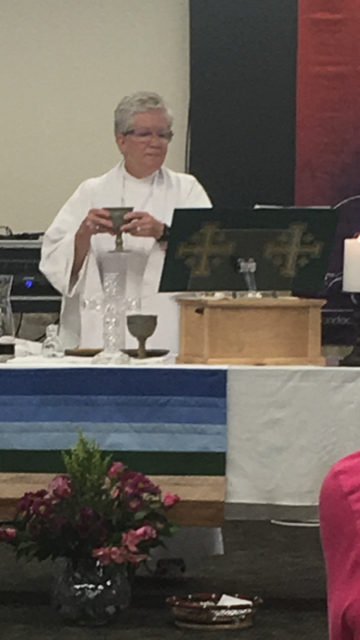
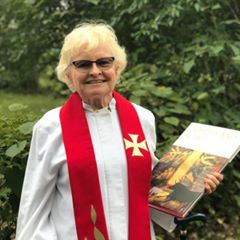
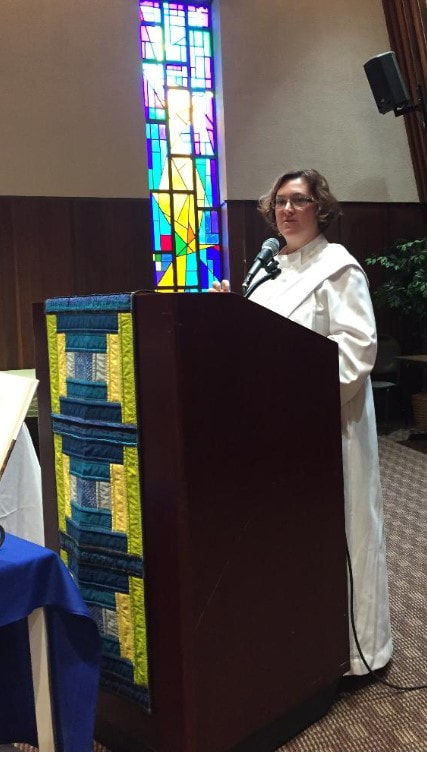
 RSS Feed
RSS Feed
